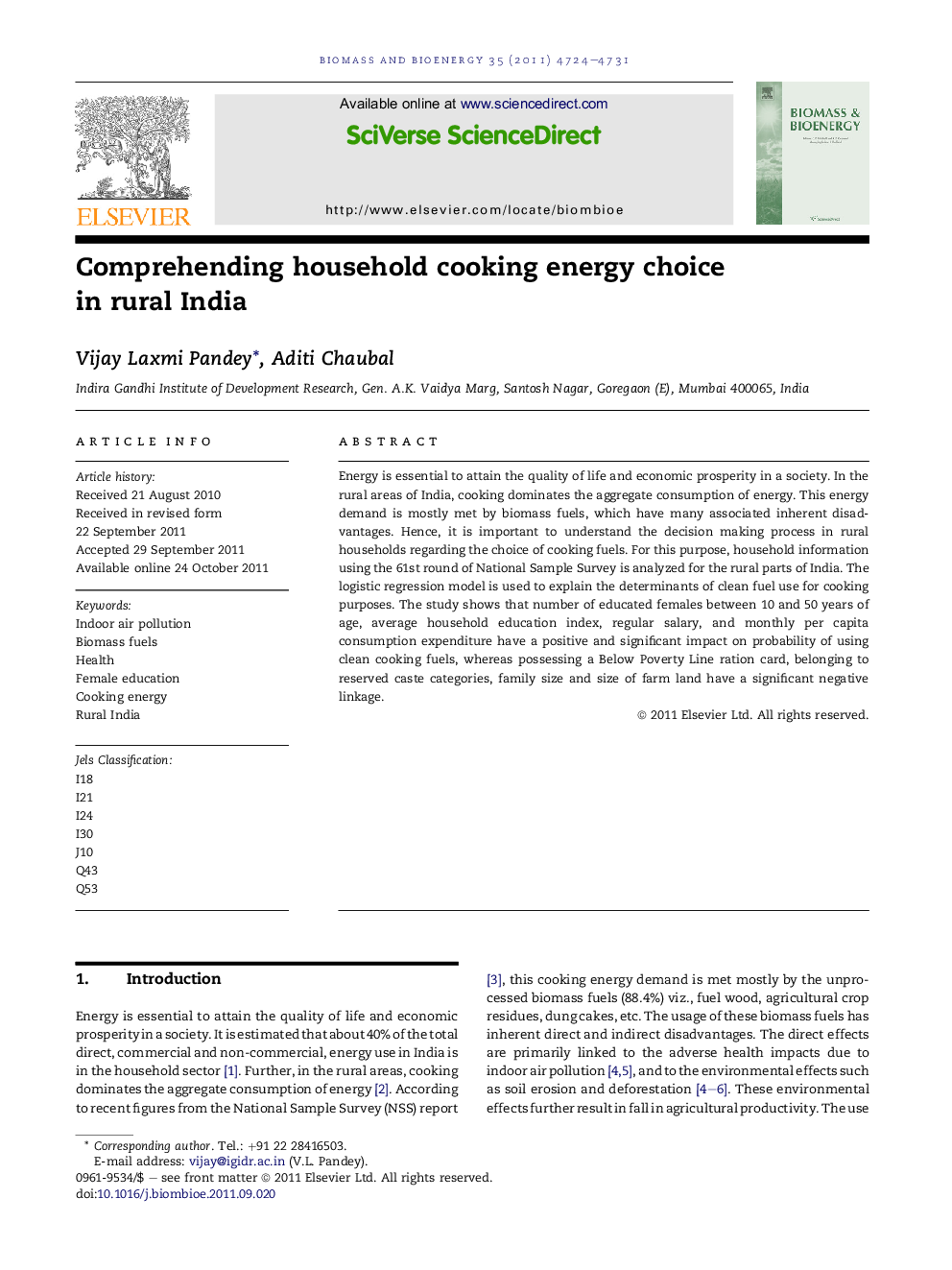| Article ID | Journal | Published Year | Pages | File Type |
|---|---|---|---|---|
| 677809 | Biomass and Bioenergy | 2011 | 8 Pages |
Energy is essential to attain the quality of life and economic prosperity in a society. In the rural areas of India, cooking dominates the aggregate consumption of energy. This energy demand is mostly met by biomass fuels, which have many associated inherent disadvantages. Hence, it is important to understand the decision making process in rural households regarding the choice of cooking fuels. For this purpose, household information using the 61st round of National Sample Survey is analyzed for the rural parts of India. The logistic regression model is used to explain the determinants of clean fuel use for cooking purposes. The study shows that number of educated females between 10 and 50 years of age, average household education index, regular salary, and monthly per capita consumption expenditure have a positive and significant impact on probability of using clean cooking fuels, whereas possessing a Below Poverty Line ration card, belonging to reserved caste categories, family size and size of farm land have a significant negative linkage.
► Conditions for encouraging clean cooking fuels. ► Higher income for households. ► Regular source of income through non-farm employment opportunities. ► Higher level of education especially for the females in the household. ► Improve accessibility and affordability of clean fuels for poor households.
